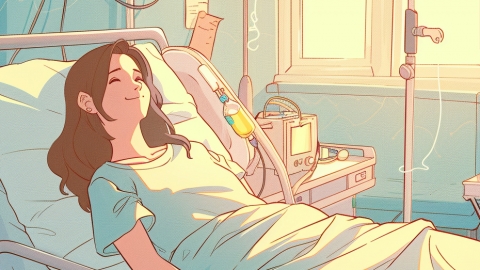What are the consequences of drinking water for patients with heatstroke?
Generally, the possible consequences of drinking water for patients with heat stroke include triggering coughing and suffocation, increasing the burden on the heart, causing electrolyte disturbances, inducing gastrointestinal discomfort, and provoking water intoxication. If any abnormalities occur, prompt medical attention is recommended. Detailed explanations are as follows:

1. Triggering coughing and suffocation: Heat StrokeIf the patient is unconscious and has weakened swallowing function, water may easily enter the trachea during drinking, causing severe coughing fits. In severe cases, this may lead to airway blockage, suffocation, and life-threatening conditions.
2. Increased cardiac burden: Heat stroke places the heart in a state of stress. Drinking large amounts of water at this time rapidly increases blood volume, causing a sudden increase in cardiac load. This may lead to arrhythmia, heart failure, and worsening of the condition.
3. Electrolyte imbalance: Due to excessive sweating, patients have already lost significant amounts of electrolytes such as sodium and potassium. If only pure water is consumed, it will further dilute the body's electrolytes, disrupting the balance and causing symptoms like muscle cramps and weakness.
4. Gastrointestinal discomfort: Drinking large amounts of water in a short period can irritate the gastrointestinal tract, causing nausea, vomiting, abdominal pain, and other discomforts. This not only affects water absorption but may also lead to further fluid loss due to vomiting.
5. Inducing water intoxication: Heat stroke may impair kidney function, reducing its ability to excrete water. Excessive water intake can lead to fluid retention in the body, triggering water intoxication, with severe symptoms including headache, drowsiness, and seizures.
When encountering a patient with heat stroke, do not hastily give them water. First, assess their consciousness and swallowing ability, ensure the airway remains unobstructed, and seek immediate medical attention. Upon reaching medical care, strictly follow the guidance of healthcare professionals to replenish fluids and electrolytes, avoiding adverse outcomes caused by improper water consumption.






